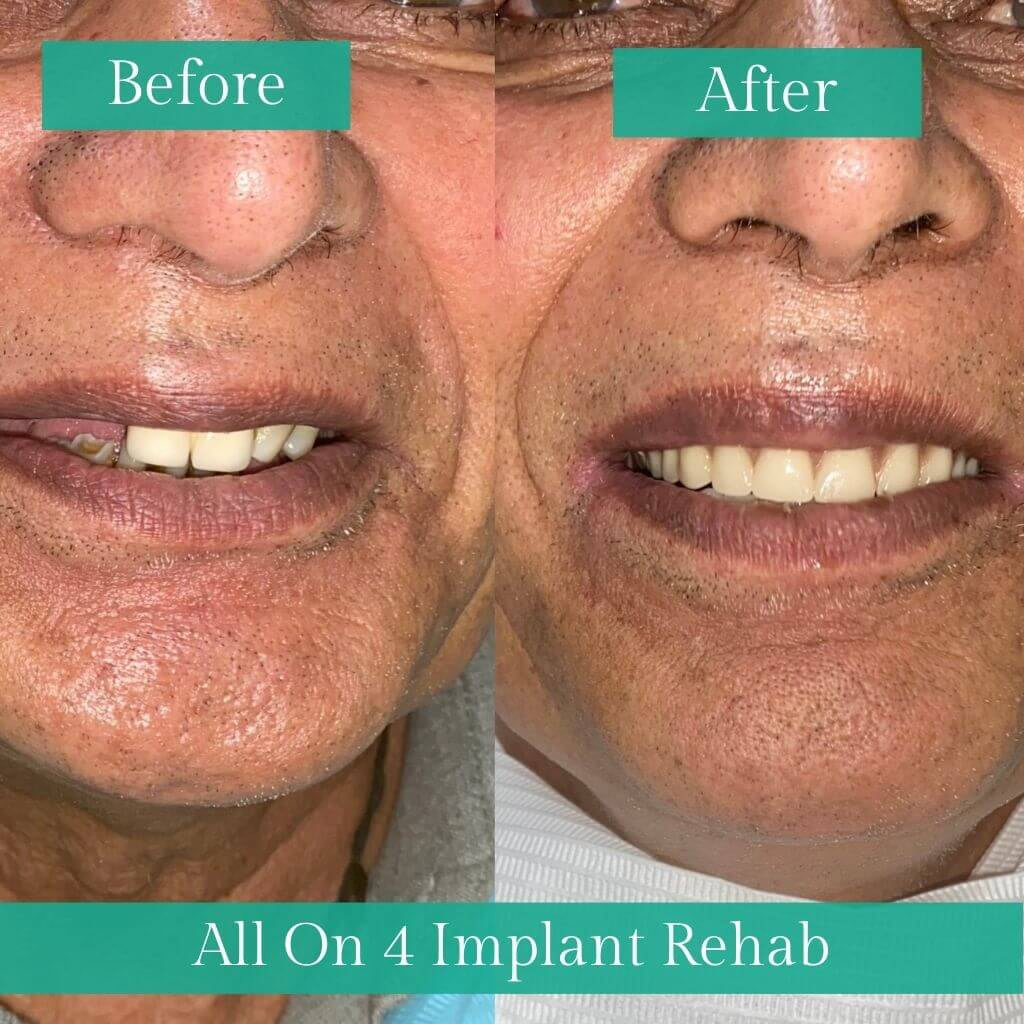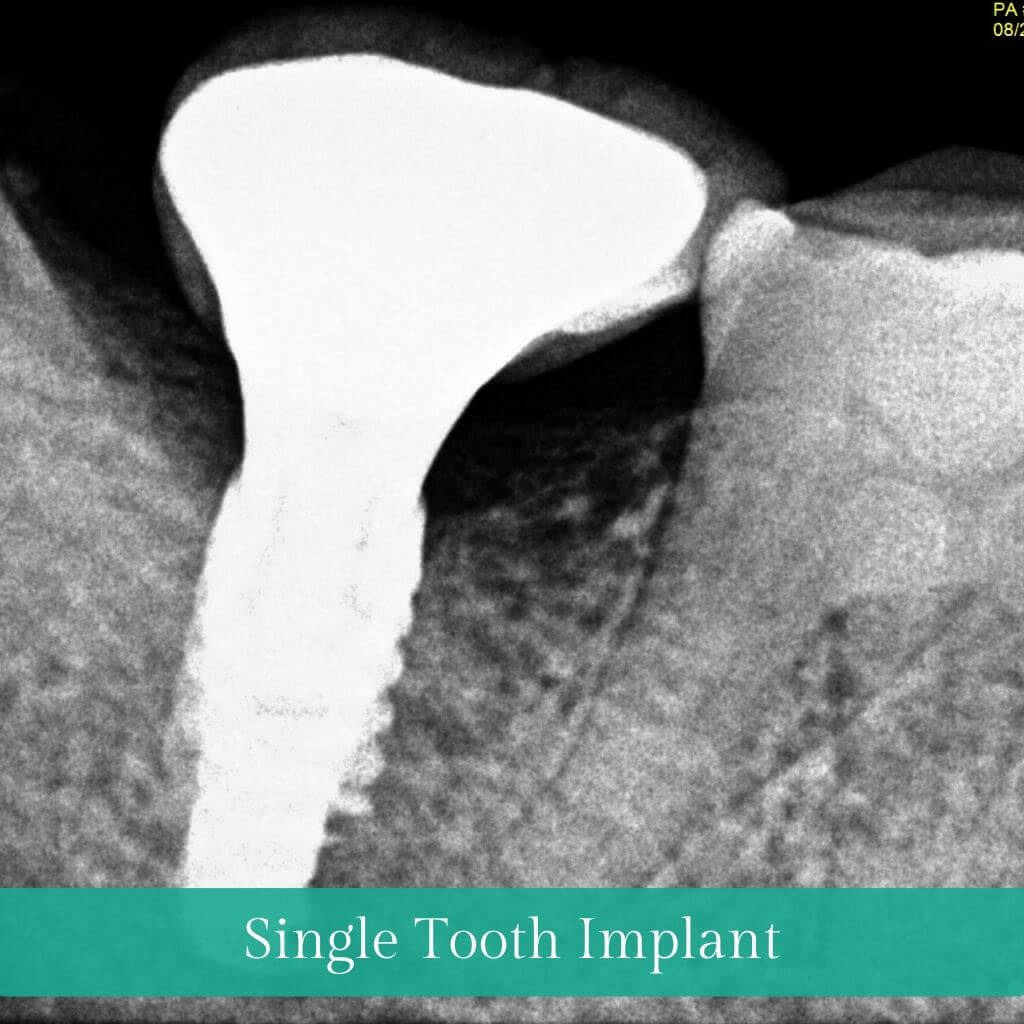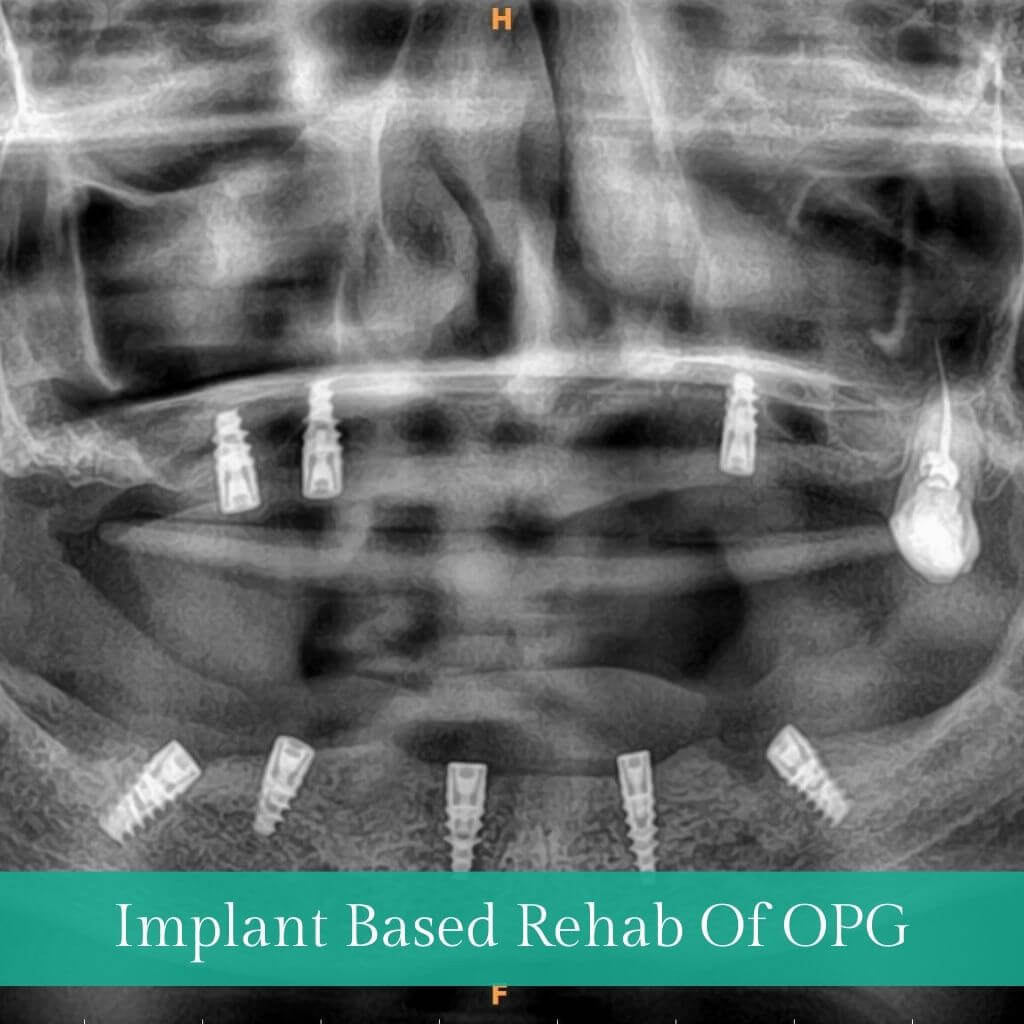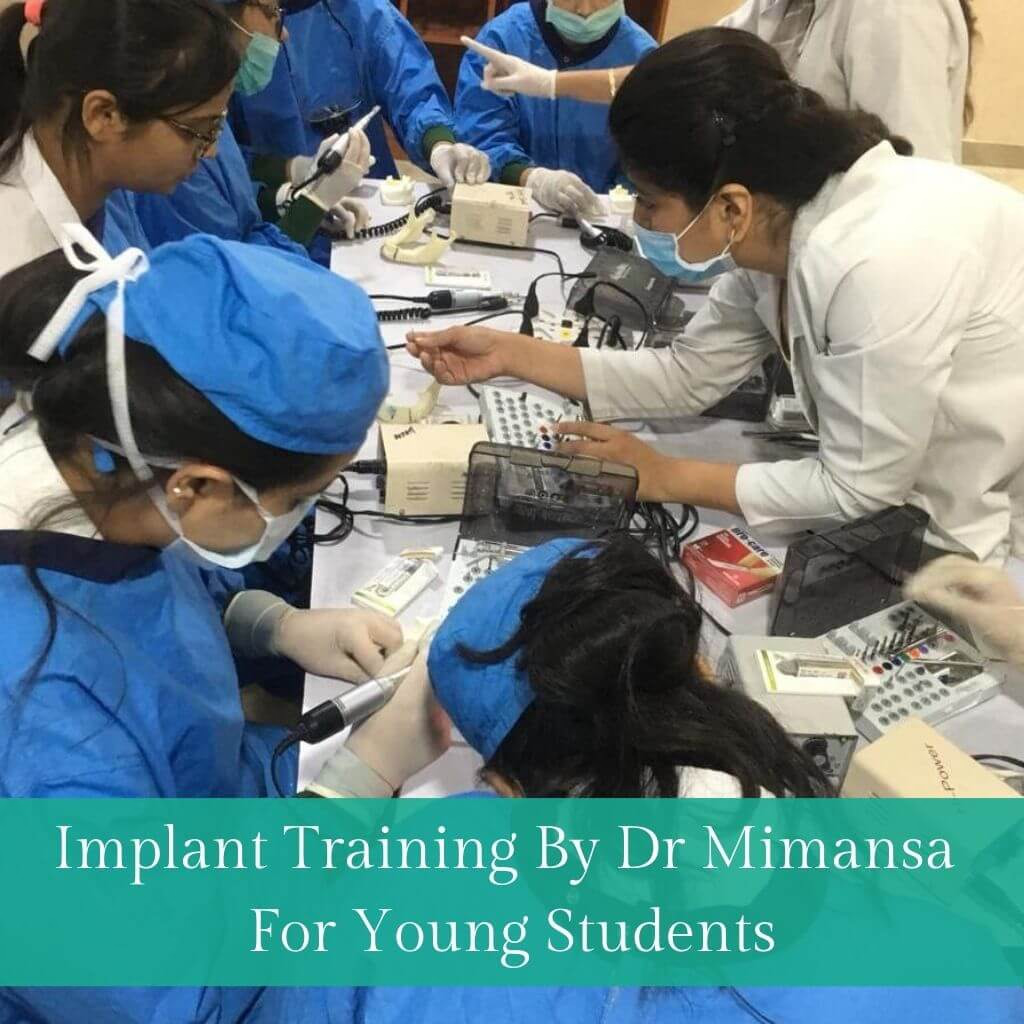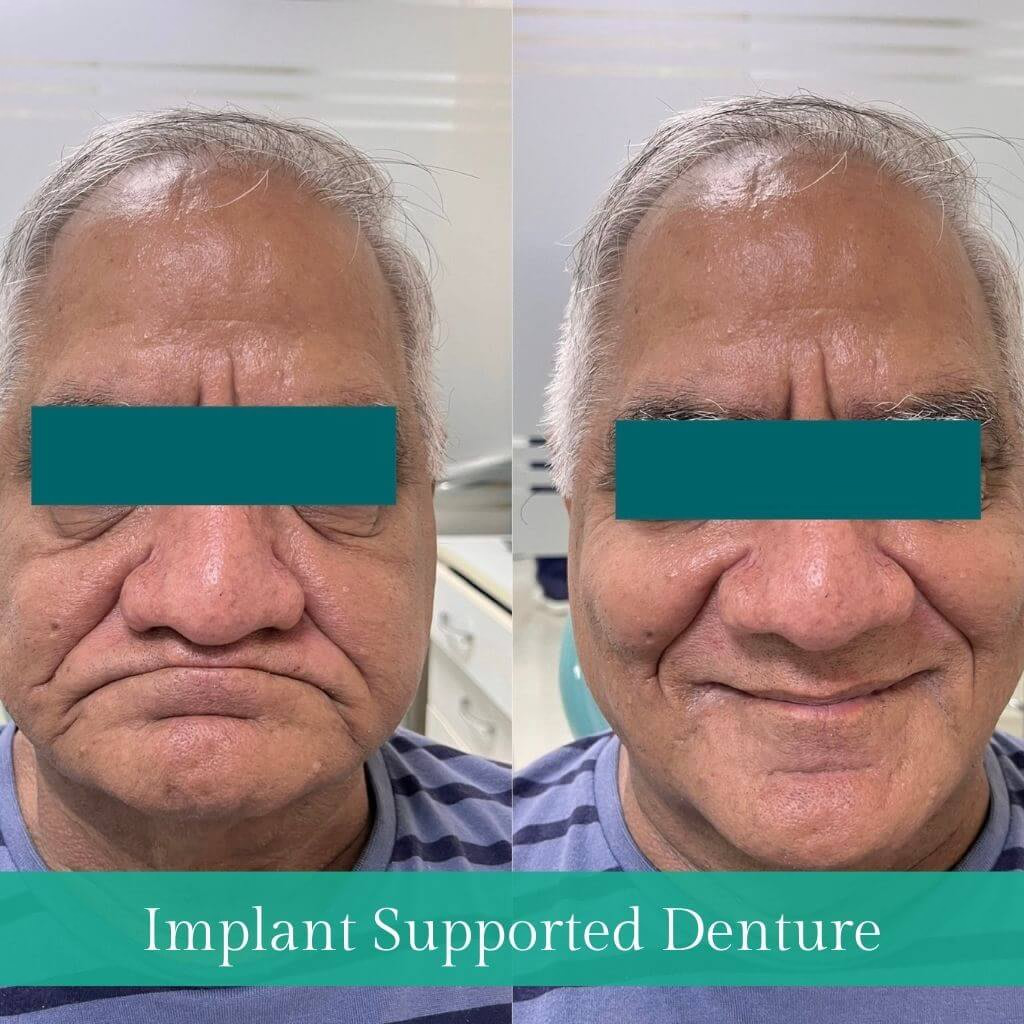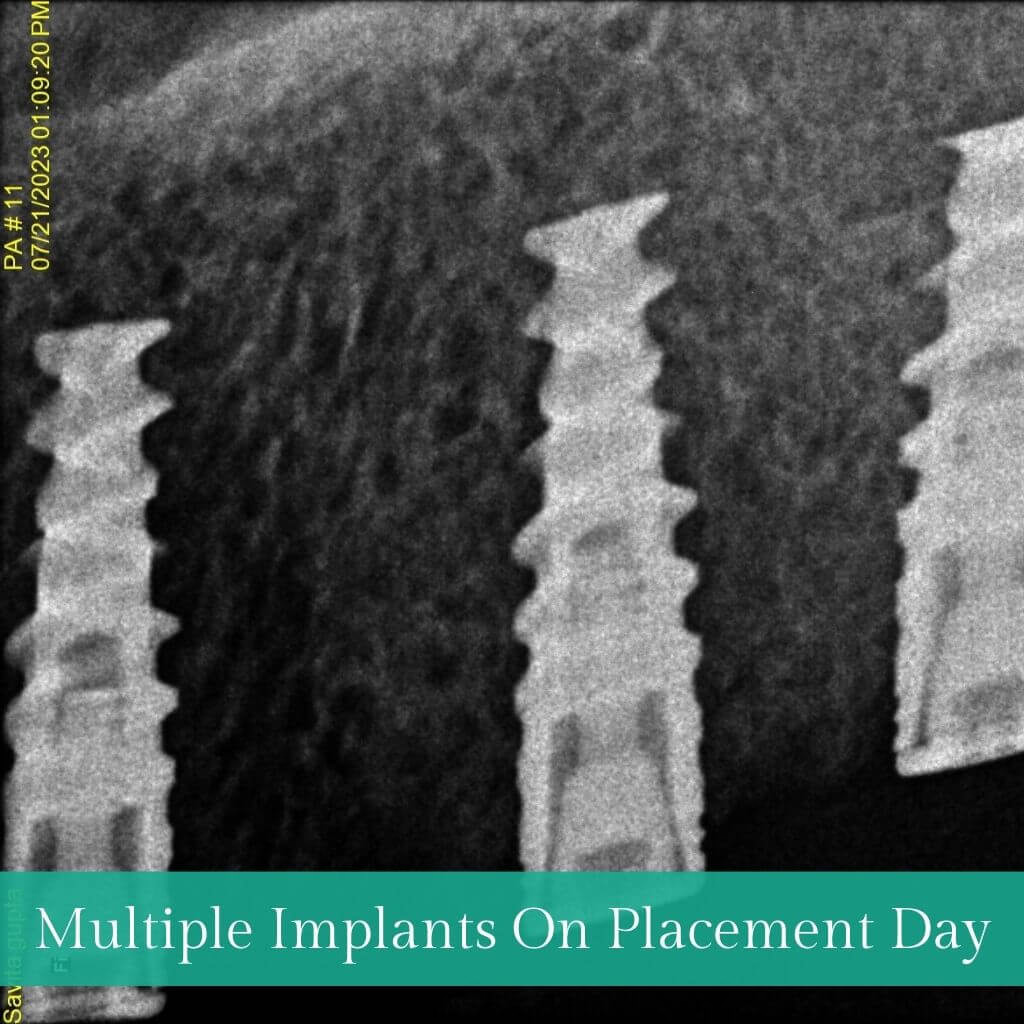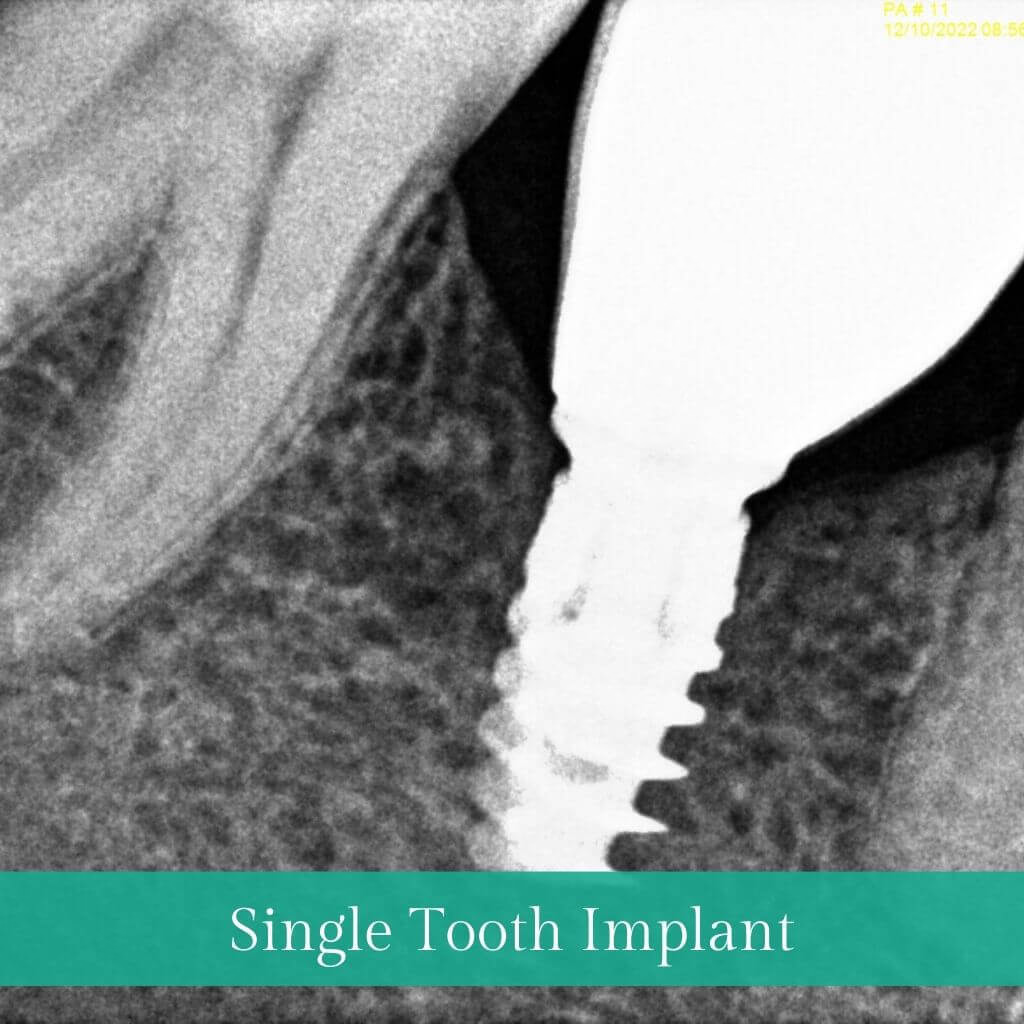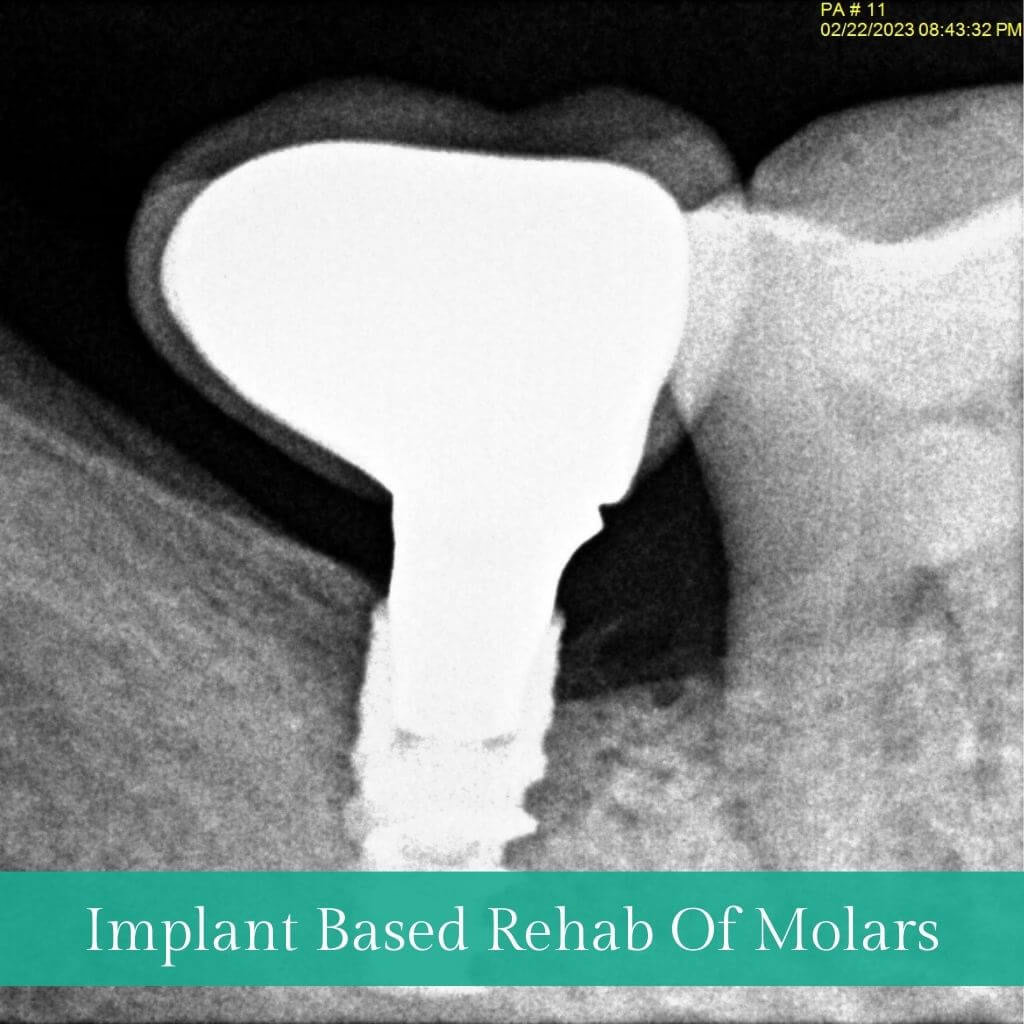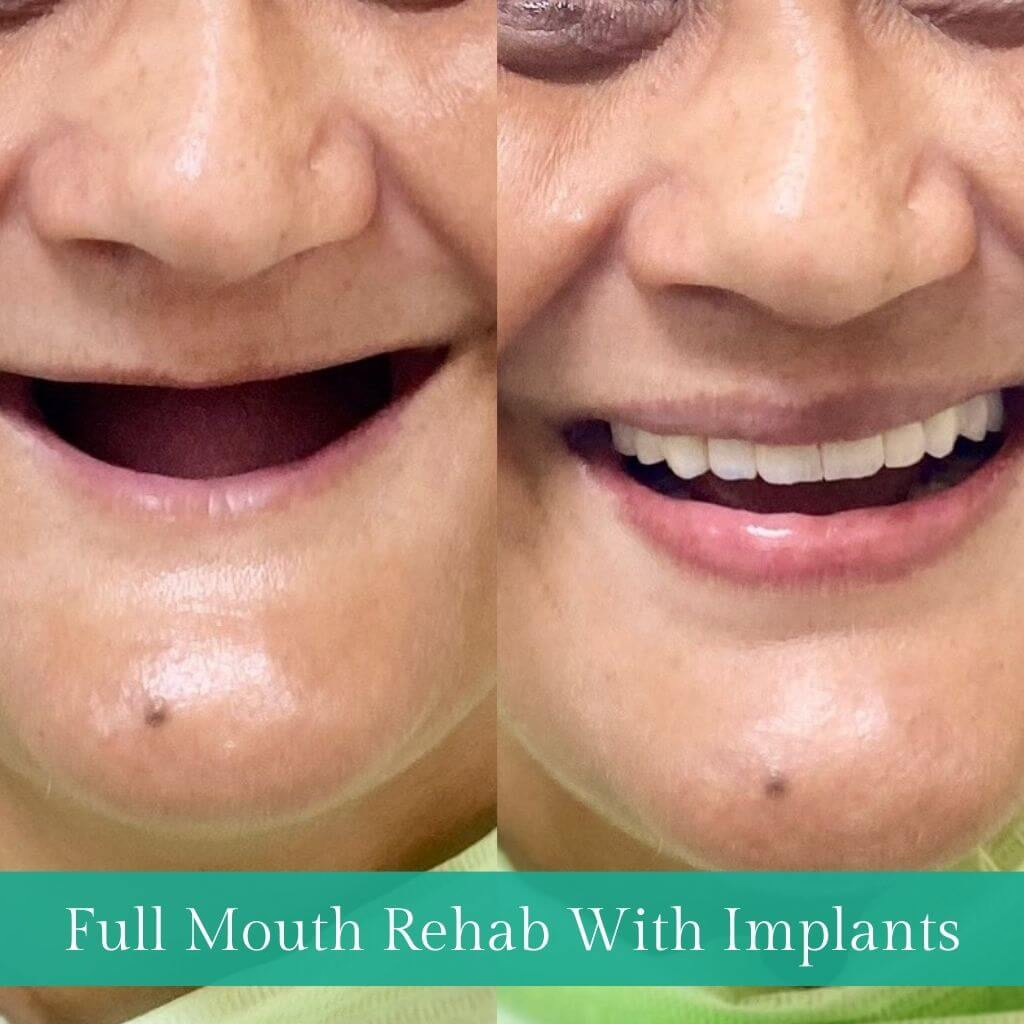Dental implants are substitutes for lost natural teeth, whether due to injury or disease. Surgically implanted into the jaw bone, these titanium posts replicate tooth roots. They're adaptable, replacing single or multiple missing teeth, even entire upper or lower sets. By providing a secure foundation, implants ensure replacement teeth mirror natural teeth look, feel, and function.
Should I get dental Implants?
Dental implants offer a robust solution for addressing tooth loss and its associated challenges. Careful evaluation of one's eligibility is crucial to determine the feasibility of this procedure. Here are key factors indicating the appropriateness of dental implants:
- Presence of one or more missing teeth
- Attainment of full jawbone growth
- Availability of adequate bone structure for implant stability or eligibility for a bone graft procedure
- Maintenance of healthy oral tissues
- Absence of health conditions that could impede bone healing
- Non-smoker status
Benefits of Dental Implants
Dental implant systems offer numerous benefits for individuals who have missing teeth. These advanced dental solutions restore the ability to chew and improve cosmetic appearance and provide several other advantages.
- Restores the ability to chew effectively
- Enhances cosmetic appearance, providing a natural-looking smile
- Prevents jawbone shrinkage caused by bone loss
- Maintains the well-being of the adjacent bone and gums
- Promotes stability in adjacent teeth, preventing potential shifting or misalignment
- Enhances the overall well-being by reinstating assurance and convenience.
Risks Associated with Dental Implants
Dental implant surgery, like any surgical procedure, carries potential health risks. While complications are infrequent, they typically manifest as minor issues that are readily treatable. The identified risks encompass:
Immediate Risks
- Infection emerging at the implantation site
- Harm or impairment to adjacent structures, including neighbouring teeth or blood vessels
- Nerve damage, which may lead to discomfort, numbness, or tingling in natural teeth, gums, lips, or chin
- Sinus-related challenges, wherein upper jaw implants extend into sinus cavities
Potential Surgical Complications
- The harm inflicted upon surrounding natural teeth during the implant installation process
- Injury to neighbouring tissues during surgery, such as accidental perforation of the sinus
- Surgical injury, exemplified by jawbone fractures
- Compromised functionality, characterised by a perception of abnormal bite alignment
- The sensation of tooth instability or rotation due to the loosening of the abutment screw
- Implant body failure, marked by the implant's mobility
- Attributable to systemic infection, potentially heightened in uncontrolled diabetes patients
- Caused by localised infection in the bone and gums supporting the implant
- Linked to delayed healing, more prevalent in individuals who smoke
Post-operative Concerns:
- Difficulty in effectively cleansing the gum area surrounding the implant, leading to suboptimal oral hygiene
- Neglected treatment of existing periodontal disease
- Persistent numbness arising from nerve compression or impairment
Aftercare Tips
- Maintain proper oral hygiene Remember to brush your teeth twice daily using a toothbrush with gentle bristles. Additionally, use an antibacterial mouthwash to maintain cleanliness in the implant area. It is important to floss diligently around the implant to prevent the accumulation of food particles or plaque.
- Avoid hard and chewy foods Stick to a soft diet for the first few days after the procedure to prevent any strain on the implant site. Gradually reintroduce solid foods as per the guidance provided by your dentist or oral surgeon.
- Take prescribed medications Follow your dentist's instructions regarding pain medications and antibiotics to prevent infection and manage discomfort. Continue the medication as directed, even if you start to feel better.
- Avoid smoking and alcohol Refrain from smoking, as it can hinder healing and increase the risk of implant failure. Similarly, avoid alcohol, as it can interfere with proper blood clotting and delay healing.
- Attend follow-up appointments Regularly visit your dentist for post-operative check-ups to ensure proper healing and monitor the progress of your dental implant. Follow any additional instructions your dentist provides to promote optimal healing and implant integration.
Which Implants should I go for?
Due to increasing demand, our market is flooded with several implant companies and types of implants.
How to decide which one is best for you?
- Availability Implants and their crowns work in a lock-and-key fashion wherein only a specific key from an implant company will fit that specific implant. Thus, as an informed consumer/ patient, it is important for you to know the company of the implant being placed in your jaw bone and its availability across different places (in case you travel and need assistance with your dental implant or in case of unavailability of your treating doctor)
- Design features Some implants have treated surfaces that promote the formation of bone and lead to faster healing and recovery. Your doctor will best assess the condition of your bone and guide you towards the best implant for your situation.
- Type of implant While most dental implants derive anchorage from the jaw bone, in cases of severely resorbed or compromised bone, sometimes advanced implantology techniques are used, which derive anchorage from zygoma or cheekbone and pterygoid plates. These implants can be proposed by your doctor in case your bone height and width are too less for conventional implants.
- We at Hope Dental and Esthetic Clinic practice a variety of implant systems that are universally recognised and proven, such as ITI Straumann implants, Nobel Biocare Implants, Adin and Alphabio implants. We also provide bone grafting and graftless solutions for rehabilitating teeth


